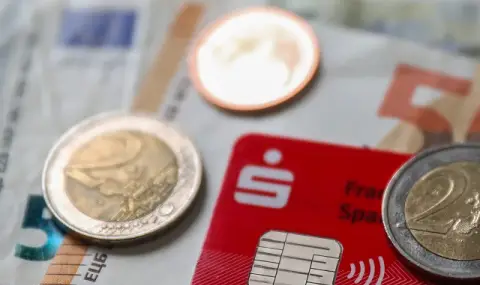Erosion of the euro and a new debt crisis in the EU – this prospect looms as a real danger if right-wing or left-wing parties triumph by promising voters gifts worth billions. Some current examples from Europe.
The campaign promises of the extreme right and the extreme left in France are very different, but there is also something in common between them – their implementation will cost many billions. Whether it's bringing the retirement age back to 60, raising the minimum wage or exempting the under 30s from tax. France's already empty coffers are threatened by huge additional costs. Where will this money come from? Neither the extreme right nor the extreme left in France has an answer to this question.
Unstable state finances
“These are economic programs that are completely unrealistic. They would be suitable for some state of nirvana, but not for the French economy in its current form", says the economist Friedrich Heinemann and defines this phenomenon as “radicalization of economic policy”.
The debt of the second largest economy in the EU already amounts to about 110% of the gross domestic product. Last year, the budget deficit reached 5.5%, which is contrary to European rules - according to the criteria of the Maastricht Treaty, a deficit of 3% and a public debt of a maximum of 60% of GDP are allowed. The electoral gifts that left and right are now promising could further complicate the situation and increase spending by up to €20 billion a year. According to some experts, even more.
What moves could the European Union take if a right-wing or left-wing government in Paris simply decided to ignore the Maastricht criteria? “There is no plan B”, admits the economist Lorenzo Codogno, who also worked in the Italian Ministry of Finance.
Exactly in Italy the situation is even more serious. There, the deficit as of 2023 is 7.4%, and the debts are about 140 percent of the country's gross domestic product. Unlike Emmanuel Macron, however, Prime Minister Giorgia Meloni's government has a firm grip on the reins.
Increasingly serious difficulties and challenges
Codogno, who teaches at the London School of Economics, does not see a scenario in which the eurozone breaks up. “But I see a scenario in which all the European institutions find themselves in a stalemate where practically nothing works.”
“And this could turn out to be problematic in a situation of trade wars between the USA and China and a very uncertain global geopolitical situation,” the expert explains to DV. And it can also affect the value of the euro abroad.
The strict Maastricht criteria were relaxed during the pandemic, and the new economic framework in the Eurozone came into force on 30 April 2024. Deficit and government debt limits are still in place, but governments now have more freedom to determine how and when to get their finances in order.
The policies of the ECB and the EC do not help for better discipline, on the contrary
But that is not enough, fears Codogno. “France could be the first country to deliberately not comply with the new fiscal framework agreements”, he warns. There is a risk that highly indebted countries will blackmail the institutions because in the past violations of the rules did not lead to serious consequences from the European Commission (EC) and the European Central Bank (ECB).
The ECB's policy of maneuvering between the rules to help indebted countries can be useful during crises such as the Covid-19 pandemic, explains Friedrich Heinemann. "But the ECB cannot be the body that maintains the liquidity of the governments in the Eurozone at all costs - even when the problems are caused by irrational economic policies," the expert emphasizes. “It sends the wrong signal.”
The EC has also too often been too lenient with those who do not comply with deficit limits, Heinemann believes. As the EU's de facto government, the Commission is not particularly well-suited to be a "neutral arbiter" of member states' debt behaviour. Because it is simply always in a situation where it has to negotiate with the member states and make compromises".
“This has to stop”
According to Heinemann, the European Fiscal Council should have more weight. It assesses whether the EC has adequately assessed the financial situation of the member states and whether it is applying the Stability Pact correctly. But the political fiscal council has no say. “If the European Commission continues to play its role in such a politicized way, where it prefers to make political compromises rather than take firm action, then I see a bad future for eurozone debt.”
The expert sees the motivation of the voters in France, who are swaying towards populism, like this: “These voters are saying to themselves: We understand that the policy we are choosing is not working. But we can demand tranches from Northern Europe - and that is much better than living on austerity. This must be put to an end, warns the expert. “Otherwise, we will have a huge problem with the way the European Union is accepted in the countries of Northern Europe.”
